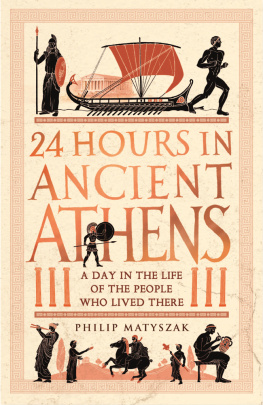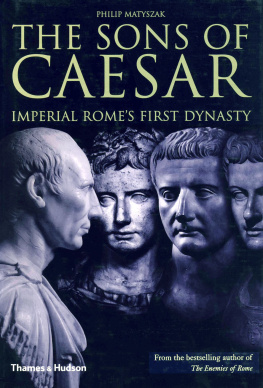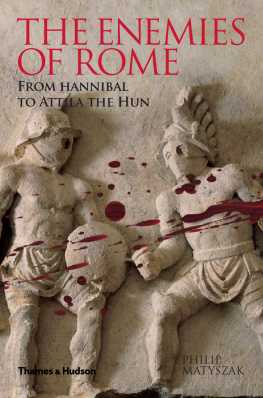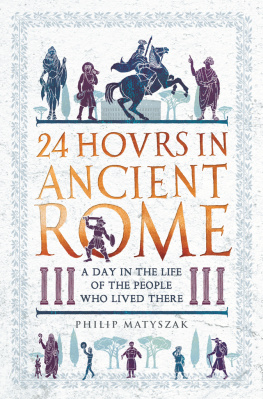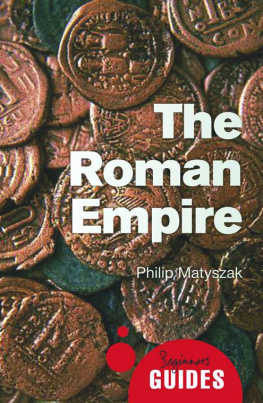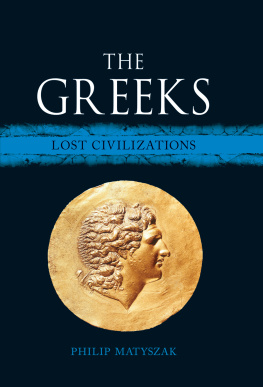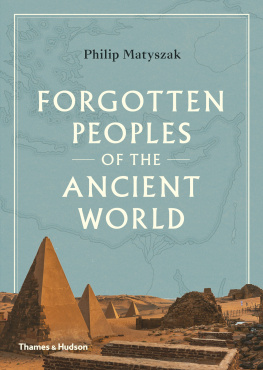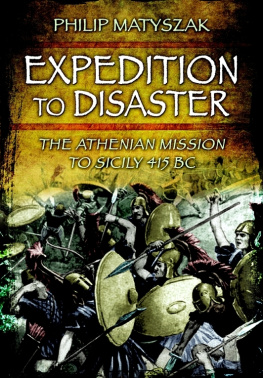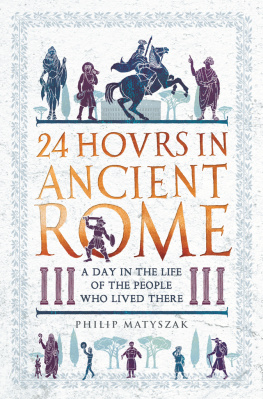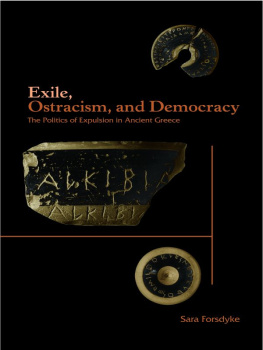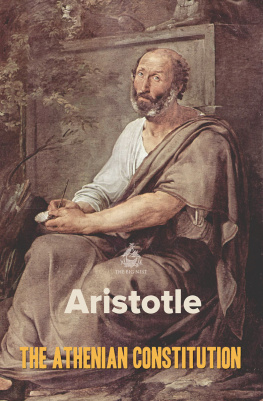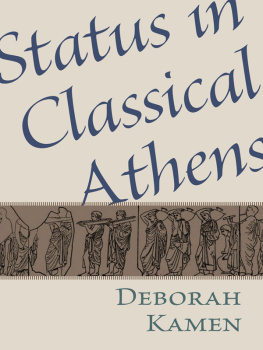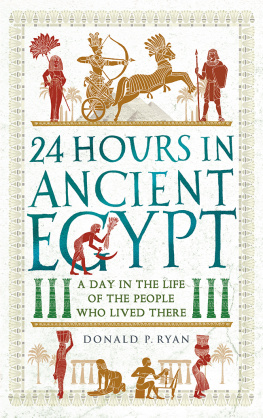
Also in this series:
24 Hours in Ancient Rome
24 Hours in Ancient Egypt
First published in Great Britain in 2019 by
Michael OMara Books Limited
9 Lion Yard
Tremadoc Road
London SW4 7NQ
Copyright Philip Matyszak 2019
All rights reserved. You may not copy, store, distribute, transmit, reproduce or otherwise make available this publication (or any part of it) in any form, or by any means (electronic, digital, optical, mechanical, photocopying, recording or otherwise), without the prior written permission of the publisher. Any person who does any unauthorized act in relation to this publication may be liable to criminal prosecution and civil claims for damages.
A CIP catalogue record for this book is available from the British Library.
ISBN: 978-1-78243-976-9 in hardback print format
ISBN: 978-1-78243-977-6 in ebook format
Follow us on Twitter @OMaraBooks
www.mombooks.com
To T.P., the Dancing Queen of Crossgates.

CONTENTS

W elcome to Athens in 416 BC. The month is Elaphebolion, just before the theatrical festival of the Great Dionysia (early April). At this time, the urban population of Athens is around 30,000, with a greater concentration of geniuses per square foot than at any other time in human history.
As the city hovers on the brink of the fateful war that will destroy its golden age, we spend twenty-four hours with regular Athenians who occasionally encounter some of the citys great men not as paragons of intellectual ability but as people with very human concerns. After all, geniuses spend little time being geniuses. Mostly they are normal people who go to the bathroom, argue with their spouses and enjoy a drink with friends.
In most ancient texts we meet the ordinary people of Athens only when they interact with the citys exceptional characters. This book turns this around, so that we only meet the geniuses of Athens when they interact with ordinary citizens going about their daily business.
Where a chapter of this book is not based on archaeological reconstruction, it is usually a contemporary text repackaged and presented from the perspective of an ordinary Athenian. Where a chapter has thus been rewritten, I have indicated where the original is to be found.
Some of the reconstructions are speculative, although based on the best research now available. Every hour of a day in the life of these Athenians is designed to capture preferably in the very words of those same Athenians their experience of living in this extraordinary, dynamic, brilliant and amoral city at the very peak of its greatness.
Today, in the spring of 416, Athens is enjoying an interlude of peace in the devastating Peloponnesian War of 431 to 404 BC. The first round of warfare came to an end with the Peace of Nicias, five years previously. Despite repeated Spartan attacks, which devastated the citys farms and orchards, Athens came out of that war stronger than ever. In fact, now goaded by Alcibiades, the enfant terrible of Athenian politics, the city is contemplating the audacious invasion and conquest of Sicily.
In this frenetic atmosphere of epoch-changing innovation and political intrigue, where some of the greatest works of western civilization are being forged with the tools of slavery and imperial oppression, ordinary Athenians are trying to get on with their everyday lives in extraordinary circumstances.
This is their story.
T here are few atheists in Athens. Those few might change their minds if they also changed places with Pentarkes the Elean. Pentarkes is on night watch in the very heart of the Acropolis, within the Parthenon of Athena. At midnight Pentarkes is very well aware of that goddess. She is standing behind him right now.
The flickering light of the oil lamps casts the shadow of the goddess before him, so that her ornate helmet moves slightly as if Athena tilts her head as she considers this mortal in her domain. Pentarkes is sure that her eyes, lapis lazuli blue in daylight, are now their true colour the steel-grey of the Athenian sky just before dawn. They call her the grey-eyed goddess: sacred Athena, daughter of wisdom, goddess of the battleline.
Pentarkes turns slowly so that he first sees the goddess by her reflection in the iridescent pool of oil at her feet. Without looking up to see, he knows she is tall, nine times the height of a man, and her skin is ivory-white. A pale arm reaches out, as though offering victory as a prize. Literally so, for the goddess has transferred her golden spear to rest against her shoulder so that Nike, the embodiment of Victory, can perch on her palm.
Victory is a fickle thing, which can at any moment fly away on gilded wings, so it is reassuring to know that Athena remains forever protecting her city. Like any respectable Athenian woman, the goddess wears a peplos, a garment that hangs from the shoulder and is girdled at the waist before it falls elegantly to her ankles. A commoners peplos is plain, unbleached wool. An aristocratic lady might flaunt a peplos of purple linen. Only Athena, favourite of Zeus and companion of heroes, wears a peplos of pure gold.
Pentarkes steps back, the better to see the face of his goddess. She looks unusually serious tonight. Is she thinking of that day, half a lifetime ago, when she was brought to life by the hand of a genius? The divine Athena was born from the head of Zeus but the body she now inhabits, the awe-inspiring statue in this temple made specially to house her, was made by Pheidias, the greatest sculptor not just of this, but (in the highly biased opinion of Pentarkes) any other age.
The statues of Pheidias are the most perfect of their kind that has ever been seen.
CICERODE ORATORE2.9
Much has happened since then. But Athena remains majestic, yet somehow approachable, magnificent in daylight, but only truly alive in the lamplight when she stands guard alongside Pentarkes.
Pentarkes first met Pheidias almost seventeen years ago, in Elis, a small city in the Peloponnese. Even as a lad Pentarkes enjoyed a certain distinction as an athlete, and was consequently welcomed into the workshop of the master sculptor. To carve the likeness of the great gods of Greece, Pheidias explained, was a privilege allowed to only a few. In Elis, the Athenian sculptor had been commissioned to produce a masterwork a statue of the patron of the Olympic games, mighty Zeus himself. (At this time, the city of Elis was in charge of organizing the Olympics.)
Pentarkes remembers Pheidias striding back and forth in a dusty workshop littered with samples of marble, ivory and rare cedar wood. Forgetting his young visitor, Pheidias mutters to himself. At the moment he passes judgement on a matter of grave importance, thats when to show him. Grave, austere, terrifying in his majesty. Yes! He quotes from the

